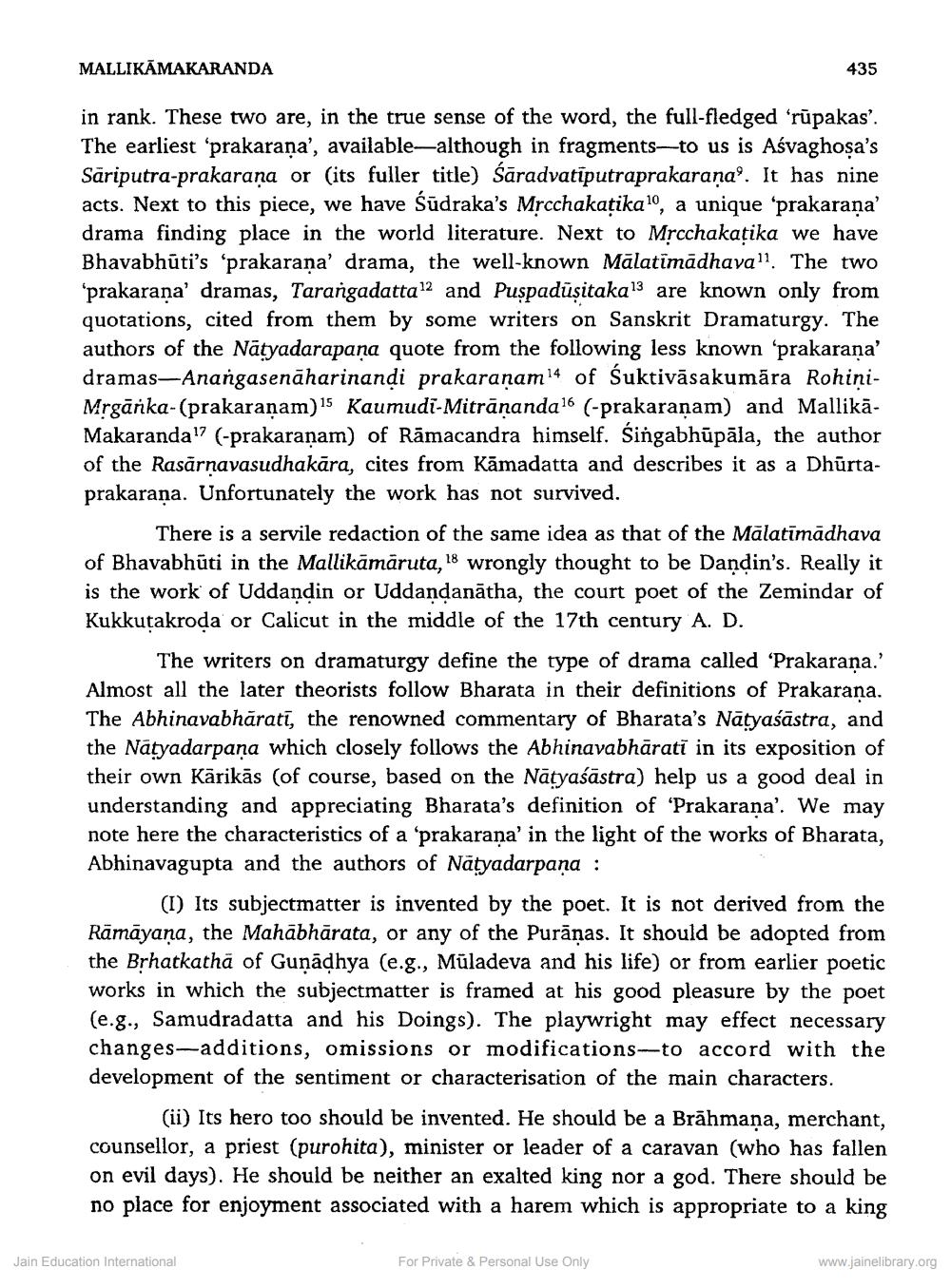________________ MALLIKAMAKARANDA 435 in rank. These two are, in the true sense of the word, the full-fledged 'rupakas'. The earliest 'prakarana', available--although in fragments-to us is Asvaghosa's Sariputra-prakarana or (its fuller title) Saradvatiputraprakarana'. It has nine acts. Next to this piece, we have Sudraka's Mscchakatika 10, a unique 'prakarana' drama finding place in the world literature. Next to Mrcchakatika we have Bhavabhuti's 'prakarana' drama, the well-known Malatimadhavall. The two 'prakarana' dramas, Tarangadattal2 and Puspadusitaka 13 are known only from quotations, cited from them by some writers on Sanskrit Dramaturgy. The authors of the Natyadarapana quote from the following less known 'prakarana' dramas-Anangasenaharinandi prakaranam 14 of Suktivasakumara RohiniMrganka-(prakaranam)15 Kaumudi-Mitrananda 16 (-prakaranam) and MallikaMakarandal? (-prakaranam) of Ramacandra himself. Singabhupala, the author of the Rasarnavasudhakara, cites from Kamadatta and describes it as a Dhurtaprakarana. Unfortunately the work has not survived. There is a servile redaction of the same idea as that of the Malatimadhava of Bhavabhuti in the Mallikamaruta, 18 wrongly thought to be Dandin's. Really it is the work of Uddandin or Uddandanatha, the court poet of the Zemindar of Kukkutakroda or Calicut in the middle of the 17th century A. D. The writers on dramaturgy define the type of drama called 'Prakarana.' Almost all the later theorists follow Bharata in their definitions of Prakarana. The Abhinavabharati, the renowned commentary of Bharata's Natyasastra, and the Natyadarpana which closely follows the Abhinavabharati in its exposition of their own Karikas (of course, based on the Natyasastra) help us a good deal in understanding and appreciating Bharata's definition of 'Prakarana'. We may note here the characteristics of a 'prakarana' in the light of the works of Bharata, Abhinavagupta and the authors of Natyadarpana : (I) Its subjectmatter is invented by the poet. It is not derived from the Ramayana, the Mahabharata, or any of the Puranas. It should be adopted from the Brhatkatha of Gunadhya (e.g., Muladeva and his life) or from earlier poetic works in which the subjectmatter is framed at his good pleasure by the poet (e.g., Samudradatta and his Doings). The playwright may effect necessary changes-additions, omissions or modifications to accord with the development of the sentiment or characterisation of the main characters. (ii) Its hero too should be invented. He should be a Brahmana, merchant, counsellor, a priest (purohita), minister or leader of a caravan (who has fallen on evil days). He should be neither an exalted king nor a god. There should be no place for enjoyment associated with a harem which is appropriate to a king Jain Education International For Private & Personal Use Only www.jainelibrary.org




